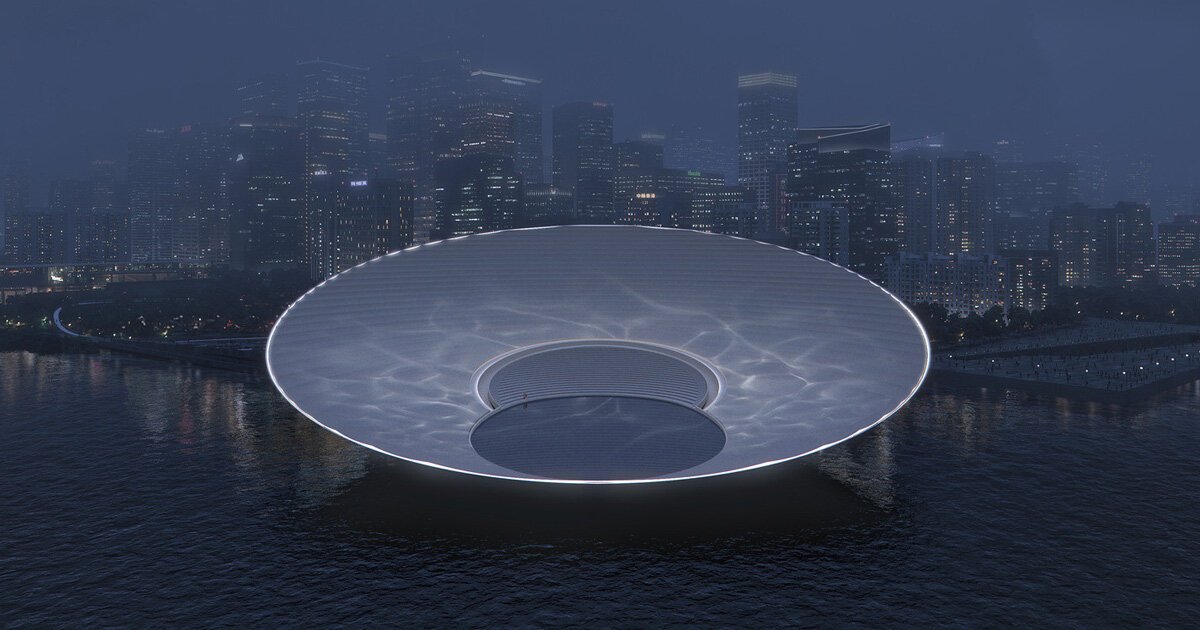“What is a landmark? Does a landmark mark the land? Or does it mark its time, its era?”, Snøhetta
The international architecture firm, Snøhetta, unveils renderings and drawings of “Lunar”. Lunar is their proposal for the International Competition for the Landmark Design of the Qianhai New City Center, Shenzhen. Snøhetta’s proposal was ranked second, besides the Aerial Tower designed by Sou Fujimoto, while no final winner was chosen for the competition.
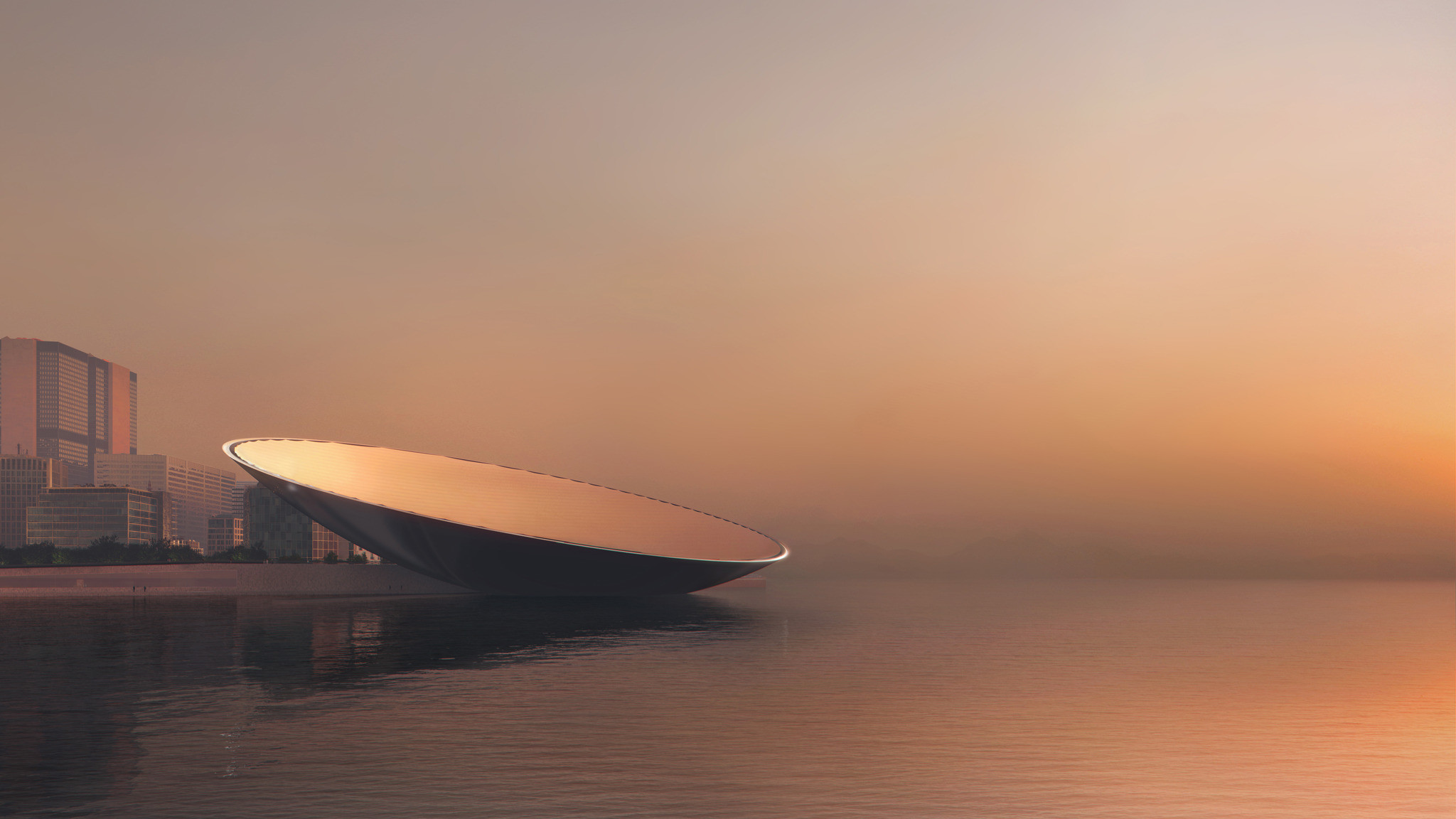
Courtesy of Snøhetta
The concept of Lunar is the result of Snøhetta’s questions regarding landmarks and what they resemble. They reached the conclusion that landmarks mark both land and era. Shenzhen, as a land, has always been the “pilot area” of China, and its current era is identified by technology. Thus, Lunar resembles “a vessel that transmits data to the world, for the world”, as stated by Snøhetta’s team.
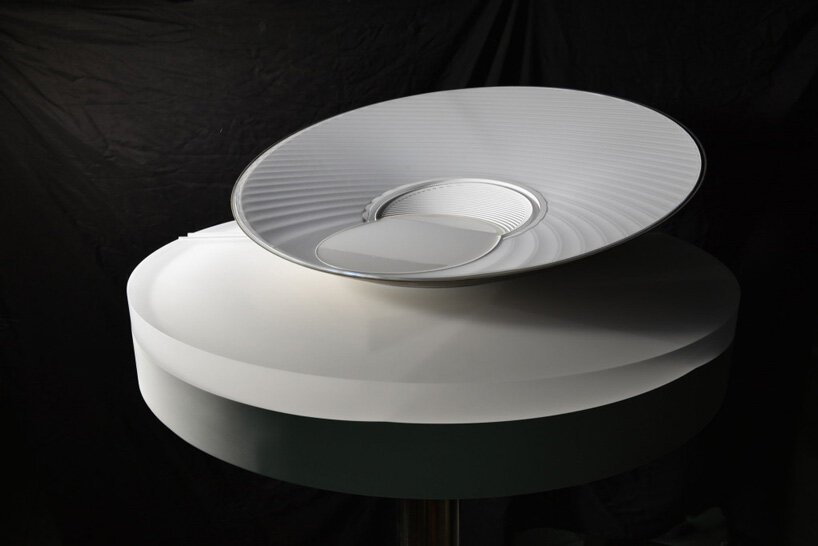
Courtesy of Snøhetta
During Lunar’s design process, the team of Snøhetta was inspired by historic landmarks such as the Eiffel Tower and Medieval Cathedrals. Eiffel Tower strongly communicates the identity and technology of its time; a highrise steel structure amid France’s industrial prowess. Lunar, in the 21st century, communicates the importance of data.
“The data of the Greater Bay Area and even the whole country will be reflected through the one moon – lunar.” states the team of Snøhetta.
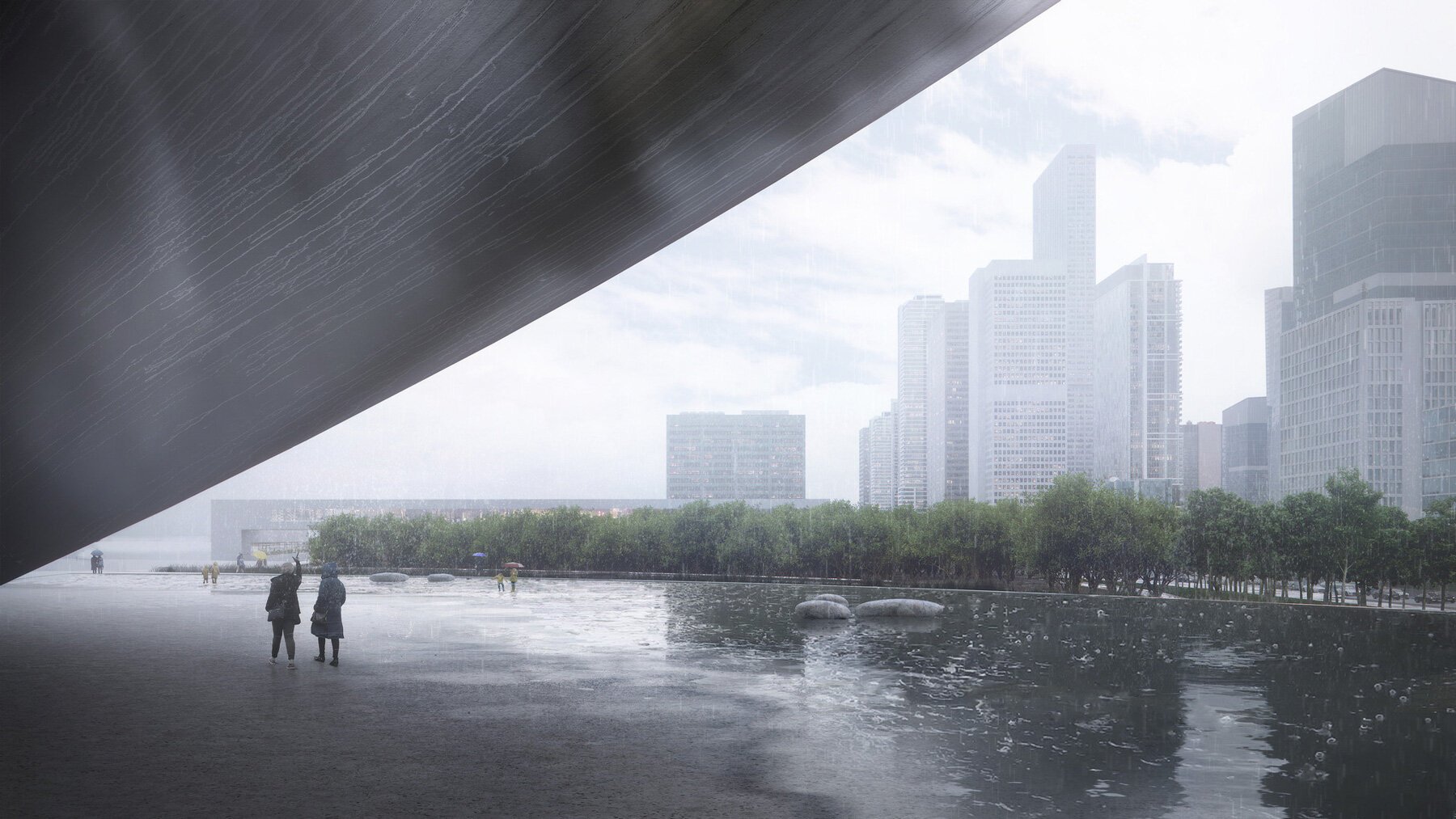
Courtesy of Snøhetta
The design, as well, accentuates the pioneering character of Shenzhen both in the past as the maritime medium where China connects with the world and a city of a promising technological future.
“This pioneering role can be traced back as far as to the Nantou System in the 16th century, interacting and interfacing with the outside world for 500 years.” noted the team of Snøhetta.
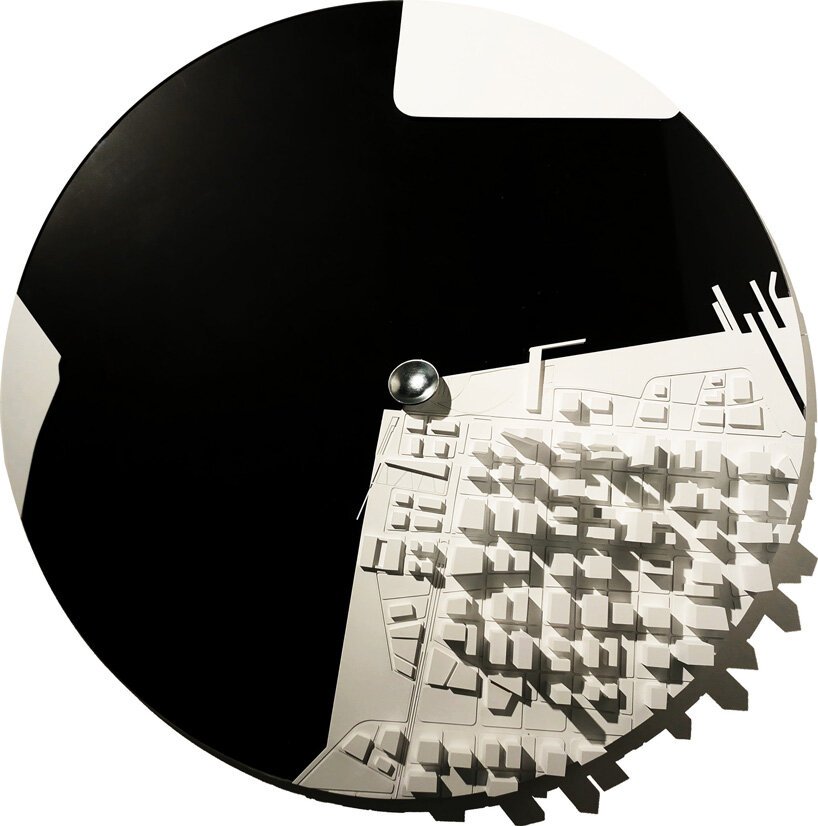
Courtesy of Snøhetta
Snøhetta’s choice of a ‘moon’ to reflect the era of data is inspired by a quote from the medieval monk Yongjia Zhenjue: “One moon is reflected in many waters; all the water-moons reflect the one moon,”
The architectural drawings of Lunar show the moon-like public space looking over the waterfront–to complement the cosmic experience, it is surrounded by a floating walkway. There is also a cafe plaza, a wetland terrace, a mangrove park, and a birdwatching platform.
Lunar is not Snøhetta’s first futuristic, cosmic architecture by a waterfront–there is ‘under’, an underwater restaurant and marine life research center designed by the international architecture firm in Lindesnes, Norway.
Snøhetta is a Norwegian architecture firm based in Oslo and Newyork with studios around the world. The firm’s design process is collaborative and trans-disciplinary. As stated by the team, Snøhetta “strives to enhance our sense of surroundings, identity and relationship to others and the physical spaces we inhabit, whether feral or human-made.”
Courtesy of Snøhetta
Courtesy of Snøhetta
Courtesy of Snøhetta
Courtesy of Snøhetta
Courtesy of Snøhetta
Courtesy of Snøhetta
Courtesy of Snøhetta


